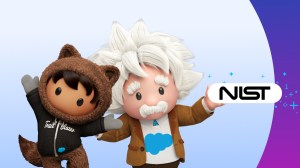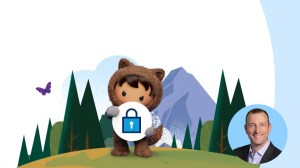Editor’s Note: This article originally appeared on Diginomica.
Customers are increasingly demanding a wraparound personalized experience, driving companies to deploy Artificial Intelligence (AI) and other technologies, such as machine learning and analytics.
But actually delivering those personalized experiences requires more than AI; it requires first and foremost access to customer data. With customers’ trust in businesses eroding, companies will need to focus on earning it back before they can focus on improving customer experience.
Customers demand personalization; personalization requires data
Eighty percent of customers today say experience is as important as products or service. Experience is so crucial that the lines between what we expect of business-to-business (B2B) and business-to-consumer (B2C) interactions are overlapping more and more. B2B customers are bringing their increasingly sophisticated expectations from their consumer experiences into the way they conduct their business life, and the two categories are starting to converge. Enter the era of “B2E,” or “business-to-everything.”
In 2019, leading brands will therefore make personalized experiences a central pivot of their growth strategies — whatever category they’re in. Take Netflix, for example, which calculates it has just 90 seconds to catch the attention of the average subscriber and recommend something they might want to watch before they lose interest and move on to something else. As a result, it’s spent more than a decade and a lot of money honing its recommendation system so it can anticipate customer needs, personalize recommendations, and suggest what to watch, when they want to watch it — all within one seamless, engaging, and responsive interface.
John Fremont, Accenture’s Go to Market lead for artificial intelligence in North America, notes the link between highly personalized interactions and loyalty; “Immediate, personalized customer experiences like this are starting to create real loyalty with customers, and that encourages those customers to share even more, enabling even more personalization. It’s a virtuous circle.”
Businesses need to focus on trust first
With the expectations for a personalized experience on the rise, companies will need to know more and more about their customers, and they will need to win over customer trust to get there.
Fifty-four percent of firms on the Accenture Strategy Competitive Agility Index for 2018 — a measure of a company’s competitiveness based on growth, profitability, and sustainability and trust — experienced a material drop in trust, losing out on at least $180 billion in revenue. According to the 2018 Edelman Trust Barometer, public trust in institutions in the U.S. dropped 17% in one year. One big reason for that distrust is how companies are handling personal data. Customers are concerned about not just the vulnerability of their personal information, but whether this it is being handled responsibly.
Companies will increasingly need to demonstrate transparency and a commitment to protecting customer data to minimize any such concerns. Trust can be a squishy, intangible thing but research shows that customers are more likely to trust companies with their personal information if they take certain actions; among the top steps are giving customers control over what data is collected, being transparent about how that data is used, and showing commitment to protecting data.
Those may be mostly obvious steps, but a surprising majority of customers (86%) also said that explaining how sharing their data leads to a better customer experience increases their likelihood of entrusting companies with said information. Therefore, companies will need to be smart about how they are using existing customer data to make customers feel recognized and understood.
In the Fourth Industrial Revolution, consumers increasingly prefer companies that give back and demonstrate ethical leadership. A study by Salesforce Research found that 93% of consumers say companies have a responsibility to look beyond profit and make a positive impact on the world.
By delivering on what consumers really value, companies will be in a stronger position to build competitive advantage and attract new customers. And in so doing, they stand a better chance of delivering repeatable, reliable growth in 2019.


















